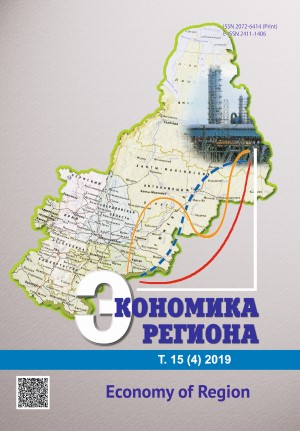ВЛИЯНИЕ ИЗМЕНЕНИЯ КЛИМАТА НА СМЕРТНОСТЬ В РОССИЙСКИХ ГОРОДАХ
The Impact of Climate Change on Mortality in the Russian Cities
Author(s): Nadezda Valerevna Kislyak, Sergey Aleksandrovich Lukyanov, Liudmila Stanislavovna Ruzhanskaya, Maksim Aleksandrovich FokeevSubject(s): Economy
Published by: Институт экономики Уральского отделения Российской академии наук
Keywords: climate change; weather; global warming; mortality; economic consequences; extreme temperatures
Summary/Abstract: The article assesses the economic consequences of rising mortality of the population suffering with cardiovascular, coronary and respiratory diseases in the Russian cities with extreme temperatures for the period from 1997 to 2017. The data on the temperature on the earth’s surface was collected daily from 1121 weather stations located in the cities with a population over 50,000 people. During the considered period, the number of extremely hot days has increased in 6 regions of the Russian Federation. Moreover, a steady trend towards climate warming has been revealed in 7 Northern regions. On average, in the span of 21 years, Russia had 21 days with extreme temperatures per year. For assessing the effect of extreme temperatures on mortality of the working-age population with selected groups of diseases, we used a panel data model with fixed effects. We have discovered that mortality statistically significantly depends on both low and high temperatures. However, high temperatures impact mortality more than cold temperatures. We have assessed economic losses from mortality of the working-age population as the sum of the regional products’ indicators for the considered period, weighted by the rate of labour force participation and the average number of deaths in the selected population groups. According to average assessments, in the period from 2000 to 2016, for 82 subjects of the Russian Federation the losses amounted to 0.6 % — 0.7 % of Gross Regional Product (GRP) annually. The obtained quantitative assessments can be used in designing the regional development strategies and concepts of smart cities in order to improve the quality of life of citizens.
Journal: Экономика региона
- Issue Year: 15/2019
- Issue No: 4
- Page Range: 1129-1140
- Page Count: 11
- Language: Russian

